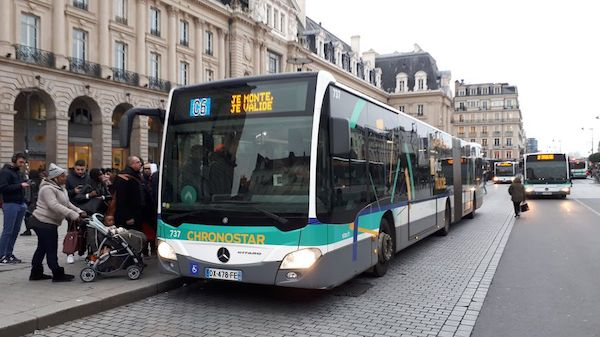Within the framework of the Mobilletic project , teams from Ifsttar, ENPC and Cérema have used anonymized data provided by Rennes metropole to identify the travel habits of public transport users.
According to the French General Commission for Sustainable Development, which published this study, "travel analysis is traditionally based on surveys, for example of public transport users or drivers. These surveys have several advantages: they cover all modes of transport, provide information on the motives for the various trips, and also contain information on the individuals surveyed (gender, socio-professional category). On the other hand, they are costly and, as a result, are only carried out at long intervals (typically seven to ten years between two surveys). This low frequency does not allow for close monitoring of mobility trends and the public policies aimed at changing them.
Mobility analysis can now be based on the digital traces generated during our travels: ticketing data, GSM, Wi-Fi or Bluetooth traces.
"These data, even if they only concern public transport trips, i.e. about 10% of daily trips (in the case of Rennes), have interesting intrinsic advantages, such as great spatial and temporal precision and a very low response bias compared to that encountered in survey data. These data, even if they concern public transport trips, i.e. about 10% of daily trips (in the case of Rennes), have interesting intrinsic advantages, such as a high degree of spatial and temporal precision and a very low response bias compared to that encountered in survey data.Statistical models developed by the researchers identified, from anonymized raw ticketing data, ten groups of users with similar transit use patterns. "The temporal routines thus identified allow for a better characterization of demand, and can be used as inputs to simulation models; they can also be used by city managers and transport operators for planning operations".
Another axis of the project was to study to what extent massive data can contribute to the evaluation of transport projects or policies, by considering the case of the shift in the timetable of the University of Rennes 2.
A final challenge of the project was to improve knowledge of intermodality practices. "Although no single data source can answer all mobility questions, the contribution of ticketing to the analysis of intermodality is significant. However, two main limitations must be taken into account: on the one hand, the often tedious enrichment and pre-processing work without which there can be no study of intermodality using ticketing data; on the other hand, the scope of intermodality is restricted "only" to the bus and metro, which certainly constitutes the largest volumes of connections, but which is not the most problematic intermodality for the user .
According to the General Commission for Sustainable Development, this work " confirms the opportunity of massive data for the evaluation of public policies .
Référence :





